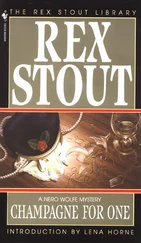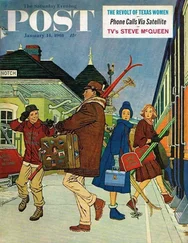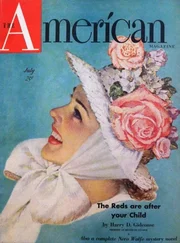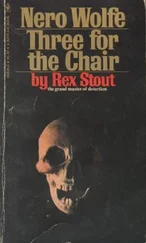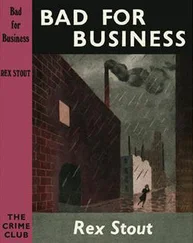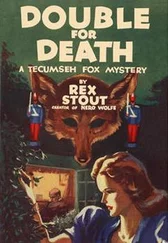Rex Stout - Champagne for One
Здесь есть возможность читать онлайн «Rex Stout - Champagne for One» весь текст электронной книги совершенно бесплатно (целиком полную версию без сокращений). В некоторых случаях можно слушать аудио, скачать через торрент в формате fb2 и присутствует краткое содержание. Жанр: Старинная литература, en-GB. Описание произведения, (предисловие) а так же отзывы посетителей доступны на портале библиотеки ЛибКат.
- Название:Champagne for One
- Автор:
- Жанр:
- Год:неизвестен
- ISBN:нет данных
- Рейтинг книги:3 / 5. Голосов: 1
-
Избранное:Добавить в избранное
- Отзывы:
-
Ваша оценка:
- 60
- 1
- 2
- 3
- 4
- 5
Champagne for One: краткое содержание, описание и аннотация
Предлагаем к чтению аннотацию, описание, краткое содержание или предисловие (зависит от того, что написал сам автор книги «Champagne for One»). Если вы не нашли необходимую информацию о книге — напишите в комментариях, мы постараемся отыскать её.
Champagne for One — читать онлайн бесплатно полную книгу (весь текст) целиком
Ниже представлен текст книги, разбитый по страницам. Система сохранения места последней прочитанной страницы, позволяет с удобством читать онлайн бесплатно книгу «Champagne for One», без необходимости каждый раз заново искать на чём Вы остановились. Поставьте закладку, и сможете в любой момент перейти на страницу, на которой закончили чтение.
Интервал:
Закладка:
"I hope," I said, "you won’t mind a personal remark."
"I’ll try not to," she said. "I can’t promise until I hear it."
"I’ll take a chance. In case you have caught me staring at you I want to explain why."
"I don’t know." She was smiling. "Maybe you’d better not. Maybe it would let me down. Maybe I’d rather think you stared just because you wanted to."
"You can think that too. If I hadn’t wanted to I wouldn’t have stared. But the idea is, I was trying to catch you looking the same twice. If you turn your head only a little one way or the other it’s a different face. I know there are people with faces that do that, but I’ve never seen one that changes as much as yours. Hasn’t anyone ever mentioned it to you?"
She parted her lips, closed them, and turned right away from me. All I could do was turn back to my plate, and I did so, but in a moment she was facing me again. "You know," she said, "I’m only nineteen years old."
"I was nineteen once," I assured her. "Some ways I liked it, and some ways it was terrible."
"Yes, it is," she agreed. "I haven’t learned how to take things yet, but I suppose I will. I was silly-just because you said that. I should have just told you yes, someone did mention that to me once. About my face. More than once."
So I had put my foot in it. How the hell are you going to be tactful when you don’t know what is out of bounds and what isn’t? Merely having a face that changes isn’t going to get a girl a baby. I flopped around. "Well," I said, "I know it was a personal remark, and I only wanted to explain why I had stared at you. I wouldn’t have brought it up if I had known there was anything touchy about it. I think you ought to get even. I’m touchy about horses because once I caught my foot in the stirrup when I was getting off, so you might try that. Ask me something about horses and my face will change."
"I suppose you ride in Central Park. Was it in the park?"
"No, it was out West one summer. Go ahead. You’re getting warm."
We stayed on horses until Paul Schuster, on her right, horned in. I couldn’t blame him, since he had Mrs Robilotti on his other side. But Edwin Laidlaw still had Rose Tuttle, and it wasn’t until the dessert came, cherry pudding topped with whipped cream, that I had a chance to ask her about the remark she had made.
"Something you said," I told her. "Maybe I didn’t hear it right."
She swallowed pudding. "Maybe I didn’t say it right. I often don’t." She leaned to me and lowered her voice. "Is this Mr Laidlaw a friend of yours?"
I shook my head. "Never saw him before."
"You haven’t missed anything. He publishes books. To look at me, would you think I was dying to know how many books were published last year in America and England and a lot of other countries?"
"No, I wouldn’t. I would think you could make out all right without it."
"I always have. What was it I said wrong?"
"I didn’t say you said it wrong. I understood you to say something about the society men that were here the other time, and I wasn’t sure I got it. I didn’t know whether you meant another party like this one."
She nodded. "Yes, that’s what I meant. Three years ago. She throws one every year, you know."
"Yes, I know."
"This is my second one. This friend of mine I mentioned, she says the only reason I had another baby was to get invited here for some more champagne, but believe me, if I liked champagne so much I could get it a lot quicker and oftener than that, and anyway, I didn’t have the faintest idea I would be invited again. How old do you think I am?"
I studied her. "Oh-twenty-one."
She was pleased. "Of course you took off five years to be polite, so you guessed it exactly. I’m twenty-six. So it isn’t true that having babies makes a girl look older. Of course, if you had a lot of them, eight or ten, but by that time you would be older. I just don’t believe I would look younger if I hadn’t had two babies. Do you?"
I was on a spot. I had accepted the invitation with my eyes and ears open. I had told my hostess that I was acquainted with the nature and significance of the affair and she could count on me. I had on my shoulders the responsibility of the moral and social position of the community, some of it anyhow, and here this cheerful unmarried mother was resting the whole problem on the single question, had it aged her any? If I merely said no, it hadn’t, which would have been both true and tactful, it would imply that I agreed that the one objection to her career was a phoney. To say no and then proceed to list other objections that were not phonies would have been fine if I had been ordained, but I hadn’t, and anyway she had certainly heard of them and hadn’t been impressed. I worked it out in three seconds, on the basis that while it was none of my business if she kept on having babies, I absolutely wasn’t going to encourage her. So I lied to her.
"Yes," I said.
"What?" She was indignant. "You do?"
I was firm. "I do. You admitted that I took you for twenty-six and deducted five years to be polite. If you had had only one baby I might have taken you for twenty-three, and if you had had none I might have taken you for twenty. I can’t prove it, but I might. We’d better get on with the pudding. Some of them have finished."
She turned to it, cheerfully.
Apparently the guests of honour had been briefed on procedure, for when Hackett, on signal, pulled back Mrs Robilotti’s chair as she arose, and we chevaliers did likewise for our partners, they joined the hostess as she headed for the door. When they were out we sat down again.
Cecil Grantham blew a breath, a noisy gust, and said, "The last two hours are the hardest."
Robilotti said, "Brandy, Hackett."
Hackett stopped pouring coffee to look at him. "The cabinet is locked, sir."
"I know it is, but you have a key."
"No, sir, Mrs Robilotti has it."
It seemed to me that that called for an embarrassed silence, but Cecil Grantham laughed and said, "Get a hatchet."
Hackett poured coffee.
Beverly Kent, the one with a long narrow face and big ears, cleared his throat. "A little deprivation will be good for us, Mr Robilotti. After all, we understood the protocol when we accepted the invitation."
"Not protocol," Paul Schuster objected. "That’s not what protocol means. I’m surprised at you, Bev. You’ll never be an ambassador if you don’t know what protocol is."
"I never will anyway," Kent declared. "I’m thirty years old, eight years out of college, and what am I? An errand boy in the Mission to the United Nations. So I’m a diplomat? But I ought to know what protocol is better than a promising young corporation lawyer. What do you know about it?"
"Not much." Schuster was sipping coffee. "Not much about it, but I know what it is, and you used it wrong. And you’re wrong about me being a promising young corporation lawyer. Lawyers never promise anything. That’s about as far as I’ve got, but I’m a year younger than you, so there’s hope."
"Hope for who?" Cecil Grantham demanded. "You or the corporations?"
Читать дальшеИнтервал:
Закладка:
Похожие книги на «Champagne for One»
Представляем Вашему вниманию похожие книги на «Champagne for One» списком для выбора. Мы отобрали схожую по названию и смыслу литературу в надежде предоставить читателям больше вариантов отыскать новые, интересные, ещё непрочитанные произведения.
Обсуждение, отзывы о книге «Champagne for One» и просто собственные мнения читателей. Оставьте ваши комментарии, напишите, что Вы думаете о произведении, его смысле или главных героях. Укажите что конкретно понравилось, а что нет, и почему Вы так считаете.

